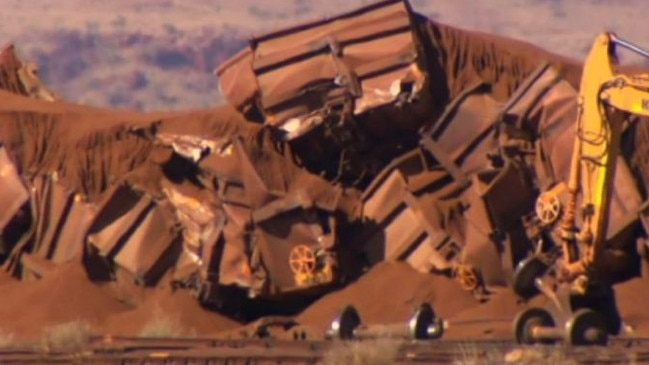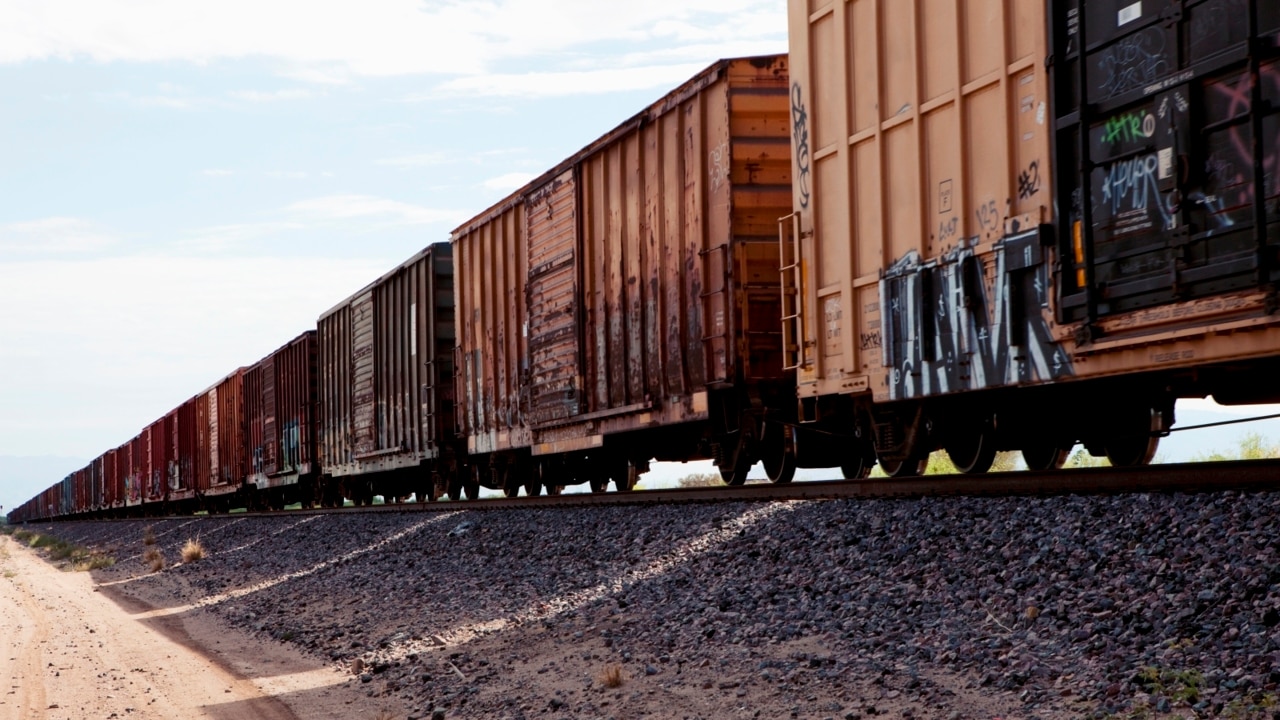BHP settles with driver of runaway train
Days after citing last year’s derailment as a factor that contributed to $1.17 billion in unplanned outages, BHP reaches a settlement with the driver.

The train driver sacked over last year’s spectacular derailment of a BHP iron ore train has reached a settlement with the mining giant.
A wrongful dismissal case lodged against BHP by South Australian man Peter Frick was scheduled to begin in Perth on Monday but the matter was pulled after the parties agreed to a confidential settlement.
Mr Frick was at the controls of the fully laden train in the Pilbara when it stopped after a brake cable disconnected. An investigation later found that the train’s electric braking system automatically released after an hour, while Mr Frick was still outside, and then rolled away.
BHP’s initial findings showed that the train’s emergency air brake was not engaged as required by the relevant operating procedure.
The train reached speeds of more than 110km/h before BHP operators derailed it about 120km south of Port Hedland. The mess knocked out BHP’s lucrative Pilbara iron ore operations for more than a week, with the miner forced to draw down stockpiles at its Port Hedland hub to keep up with its shipments.

BHP would not confirm or comment on any settlement.
“The findings from our investigation into the train derailment have confirmed that the rollaway incident was the result of procedural non-compliance by the operator as well as integration issues with the electronically controlled pneumatic braking system,” a spokeswoman for the miner said.
“The driver of the train is no longer employed at BHP. Out of respect for the individual and their privacy we are unable to provide further information.”
The latest developments came just days after BHP cited the derailment as a factor that contributed to $US835 million ($1.17 billion) in unplanned outages during the first half of the financial year. Maintenance issues at its Olympic Dam copper-gold mine in South Australia were the major contributor to the productivity hit, with fires at its Spence copper mine in Peru and its Nickel West smelter in Kalgoorlie also partly to blame.

